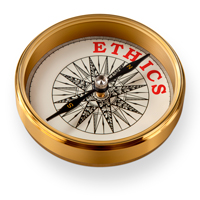[three_fourth_last]
Beyond Traditional Approaches to Ethics
The traditional approach to ethics in the helping professions has been a reliance on codes of ethics and decision-making models as the primary means to understand and resolve ethical tensions. However practitioners have found these strategies inadequate and often express feeling isolated, unsupported and without satisfactory analytical tools to deal with their ethical struggles. This is particularly true in an era in which the social safety net has eroded and concerns about the bottom line have infiltrated the delivery of social services. Also, individual differences have a significant impact on workers’ management of ethical complexities but little attention has been given to how difference influences the resolution of ethical problems for professionals.
our code of ethics is so vague.
how do you really effectively support young women when you have such a constricting box that you have to work out of?
[/three_fourth_last]
[three_fourth_last]
Dr. Merlinda Weinberg and Questions on Ethics
Dr. Merlinda Weinberg provides a unique perspective on ethics in the helping professions. The traditional approach has focused on the dyadic relationship between worker and client/patient and has spotlighted codes of ethics. Dr. Weinberg has critiqued this social construction of ethics as inadequate, offering new and expanded ways of conceptualizing professional ethics. Dr. Weinberg’s research explores the paradoxes and constraints in practice, as well as connecting the subjective experiences of practitioners (emphasizing diversity) with the impact of socio-political aspects such as restructuring and the neo-liberal environment. She explores how providers, in their understanding and implementation of ethics, foster and/or resist inequities in the helping relationship, with a view to establishing knowledge that could increase social equality for service users.
Dr. Merlinda Weinberg , a professor at Dalhousie University in the School of Social Work , has engaged in a number of research projects to explore these concerns and to expand the way in which ethics is understood. She has provided a forum for practitioners to discuss issues that arise in their day to day work and has developed a list of analytical tools to broaden the strategies available to practitioners for looking at ethical concerns. Dip into the research, participate in the discussion forum about ethics in the helping professions, and consider questions such as:
- What becomes an ethical concern for a worker in the helping professions? Why?
- What are the barriers and constraints in our current society that present ethical challenges for workers?
- How does difference (someone’s race, seniority, or geographic location, as examples) influence what someone sees as ethically problematic?
- How do those differences change the way an individual resolves an ethical struggle?
- What strategies have workers arrived at to behave in manners that they view as ethical?
- How do we foster ethical solutions that reduce the social inequities in our society?
- How do language and discourse shape what is viewed as ethical?
Curriculum Vitae for Merlinda Weinberg
[/three_fourth_last]

